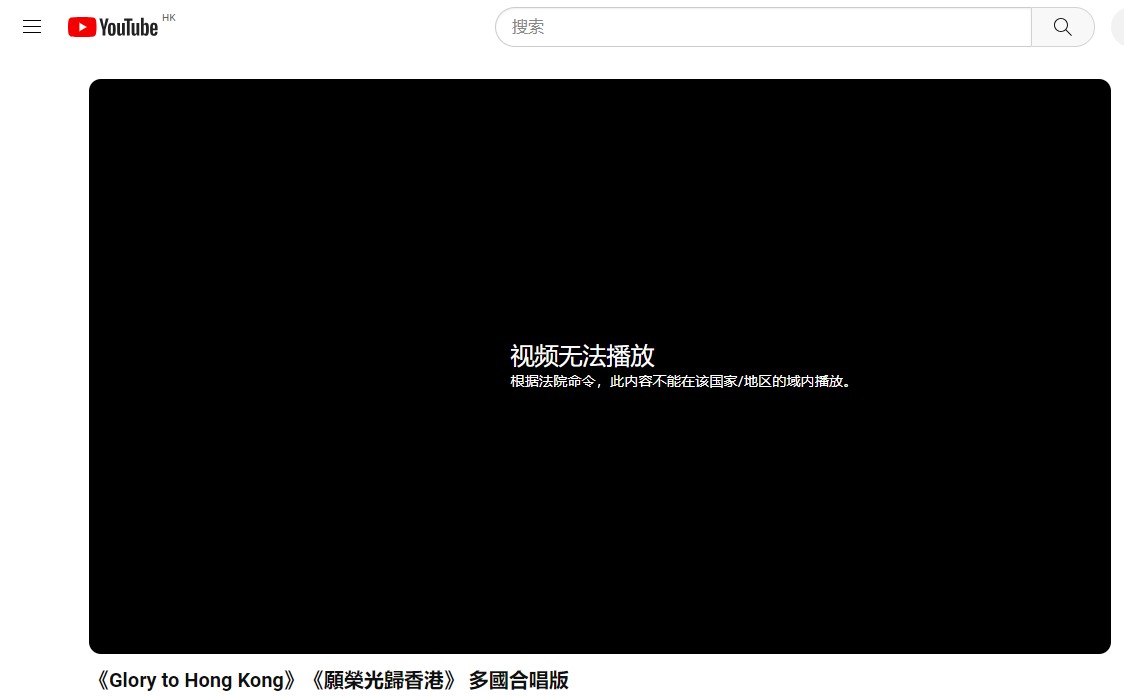
YouTube said on Wednesday that it has blocked access in Hong Kong to 32 video links to the protest song Glory to Hong Kong in response to a court ruling last week.
The video streamer, owned by Google, acted after an interim injunction was granted by the city’s High Court on May 8 banning the broadcasting, performing, publishing, distribution or reproduction of the song in any form.
A spokesperson for YouTube said the geographical blocking applies with immediate effect to users in the Hong Kong Special Administrative Region. Links to those videos will also no longer show for users in Hong Kong on search engine Google, the spokesperson added
The 32 video links - listed in the court’s order - now display the message that says this content is not available on this region domain due to a court order.
READ MORE: Protest song banned after HK appellate court overturns previous ruling
A spokesperson for YouTube said the geographical blocking applies with immediate effect to users in the Hong Kong Special Administrative Region. Links to those videos will also no longer show for users in Hong Kong on search engine Google, the spokesperson added.
As of Thursday noon, searches for Glory to Hong Kong or the song’s name in Chinese on YouTube still brought up visual and audio content in the city.
In a statement, YouTube said it is complying with the removal order, but is disappointed by the court’s decision. The company said it is considering options for an appeal against the court order, and claimed the ban would raise skepticism over the Hong Kong Special Administrative Region government’s efforts to foster its digital economy and reclaim the city’s reputation as a predictable place for doing business.
READ MORE: Commissioner’s office: HK ban on protest song necessary for stability
A Hong Kong government spokesperson said on Wednesday that the authorities have noted that some social media platforms have taken measures to comply with the ban, and stressed that all parties must abide by the court’s decision.
In response to YouTube's statement, Hong Kong lawmaker Elizabeth Quat Pui-fan said that claims that the ban could harm Hong Kong’s digital economy were absurd.
READ MORE: Legal heavyweights urge online platforms to follow court’s protest song ban
She pointed out that in many countries and regions — including the European Union and the United States — legal action has been taken to force Google to remove specific content, and that any such action has not affected the development of the technology and creative industries in those places.
She said the Hong Kong government should continue to demand that all online platforms follow the court order and remove the song.


